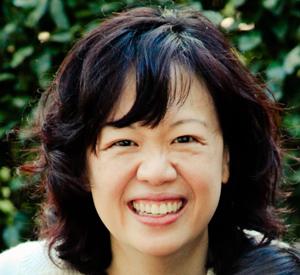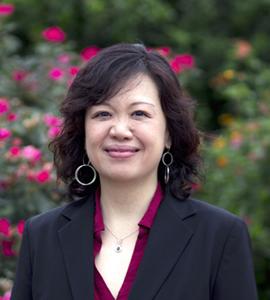Meet EPA Scientist Cecilia Tan, Ph.D.

Making Sense of Chemical Exposures
EPA scientist Cecilia Tan, Ph.D. has research experience in environmental engineering, occupational health and safety, human health assessment, and computational modeling. Her recent research focuses on interpreting human biomarker data (chemical or metabolite concentrations) through exposure and other models know as pharmacokinetic/physiologically-based pharmacokinetic (PBPK) models. PBPK models use mathematical equations and statistics that scientists and other use to predict how the body (human and animal) absorbs, distributes, metabolizes, and excretes chemicals.
The focus of Dr. Tan’s work is to paint a more complete picture of real-world chemical exposures to support actions to protect human health and the environment.
How does your science matter?
We are exposed to many chemicals through everyday activities, such as eating, drinking water, of doing things like cleaning our homes or spraying something in our gardens. It’s my job to see which chemicals are making it inside our bodies, and if so, at what levels should we be concerned about adverse health effects?
My colleagues and I analyze metabolites in urine samples to determine what chemicals people are exposed to and the levels in their bodies. By using these samples, we get a clear understanding of what chemicals actually enter peoples’ bodies, helping ensure that EPA studies prioritize those chemicals that are most likely to affect people.
For our research, we select a specific, priority chemical and then conduct exposure studies and pharmacokinetic modeling to estimate what the potential exposure is. We compare those levels to what we have learned from toxicity testing. By combining these methods we can learn a lot from about how chemicals can affect our many body systems.

If you could have dinner with any scientist, past or present, who would you choose and what would you ask them?
I would like to have dinner with Albert Einstein. I’d like to ask him about his quote, “Two things are infinite: the universe and human stupidity; and I'm not sure about the universe.” I want to ask him, how did he come to that conclusion?
When did you first know you wanted to be scientist?
When I was in high school, I was good at math and science but not at literature and art. Science seemed to be a good fit for my style of thinking.
What do you like most about your research?
Computer modeling uses equations to describe a system. It’s exciting when you predict something that you didn’t expect to see. That’s when you learn something new!
Tell us about your background.
I got my Bachelors degree in environmental engineering from National Cheng Kung University in Taiwan. I got my Masters of science degree in environmental health from Harvard School of Public Health. I received my Ph.D. from the University of North Carolina – Chapel Hill in environmental engineering with a focus on environmental health. I also got an M.B.A. degree from North Carolina State while I was working.
If you were not a scientist, what would you be doing?
I’m a really good organizer, so I’d be a party planner. Maybe a wedding planner!
Any advice for students considering a career in science or engineering?
Don't be afraid to make mistakes! That's when you learn things. Sometimes, even when you have all the facts correct, you have to take a step back and look at the entire system. You may think you're getting the wrong answer despite doing everything correctly, but you might need to look at the system again. Maybe there is something happening that you didn't see at first or understand.
Editor's Note: The opinions expressed herein are those of the researcher alone. EPA does not endorse the opinions or positions expressed.
